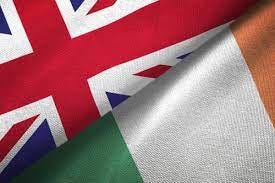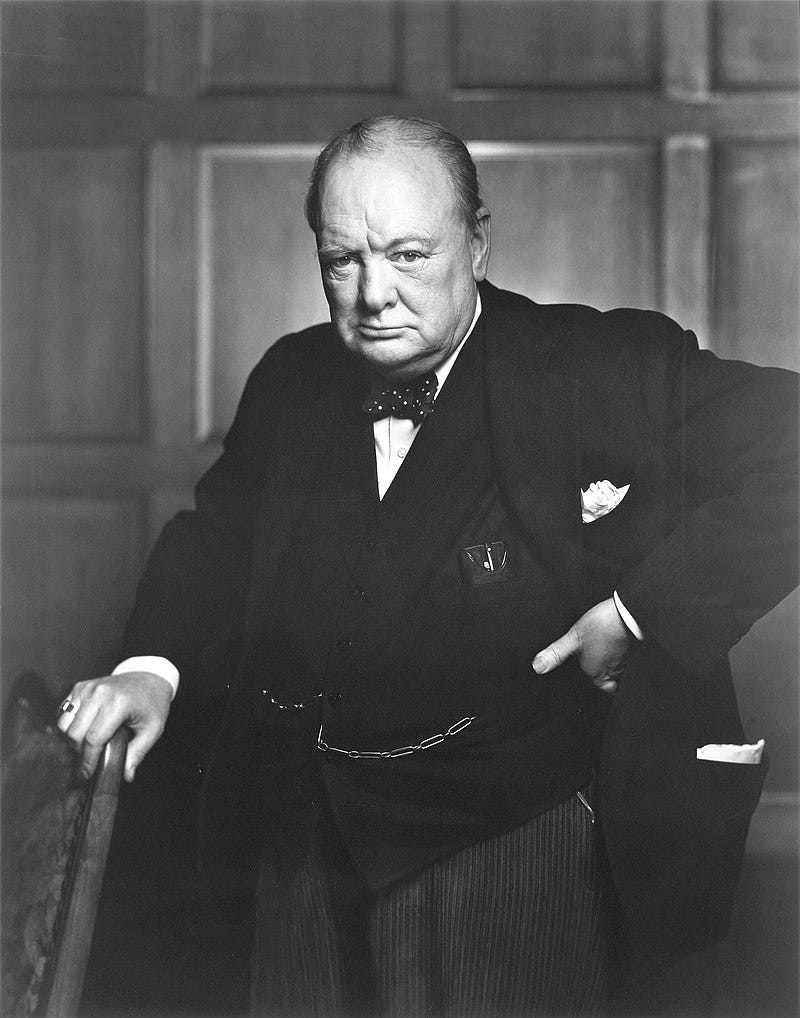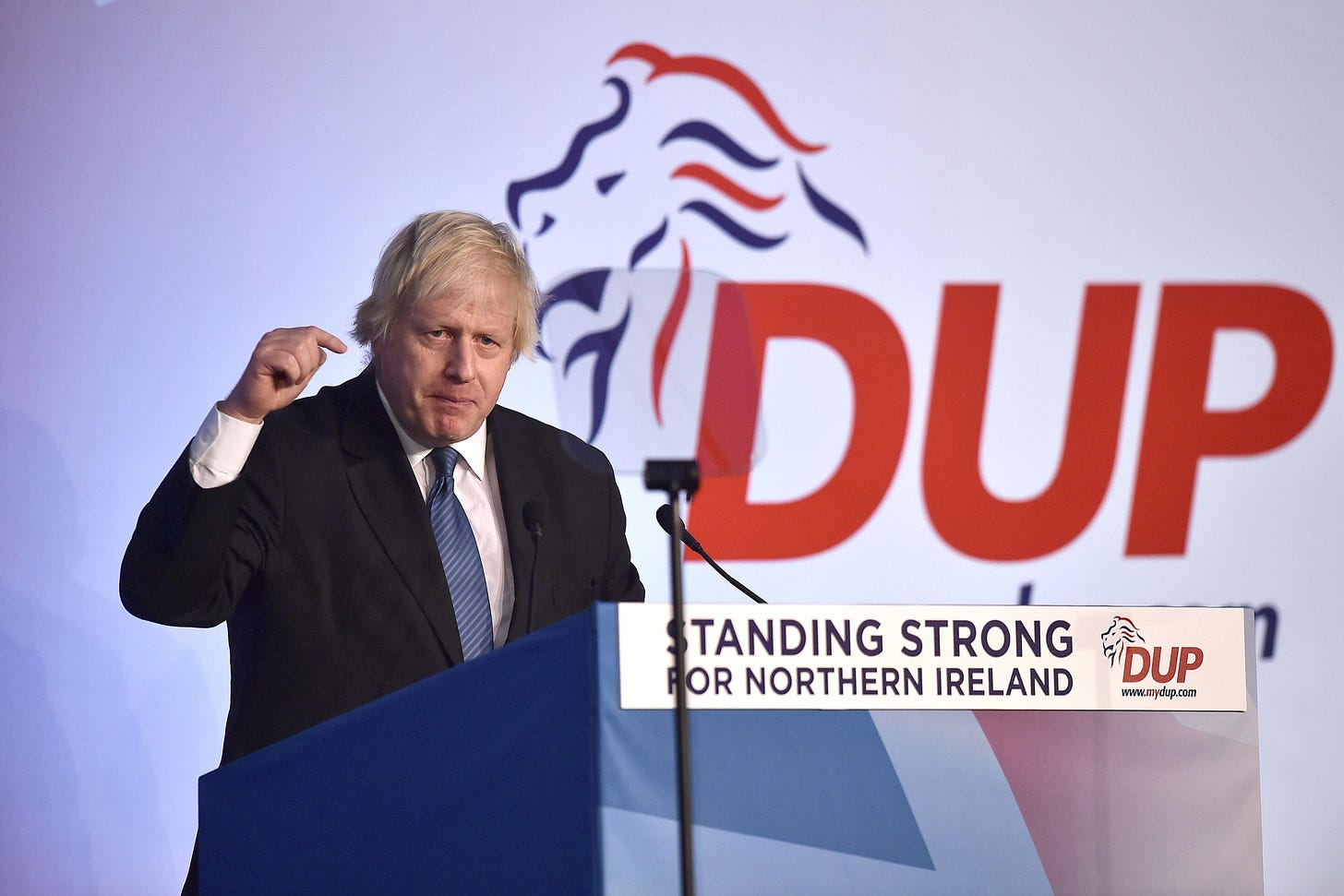Ireland - the gnawing sore preventing Britain’s march to greatness?
A brief history behind Britain's problem child
Ireland in general and Ulster in particular have always been the problem crew members of the hitherto ship of the British Empire and current vessel of Global Britain.
Britain has consistently regarded the Irish question as an nuisance with the cheek by jowl paddies an especially troublesome settlement.
England in particular has always viewed Ireland as an incontinent and rebellious offspring stuck in its popish delusions, with constant rebellions, uprisings and demands for autonomy and respect. While Wales and Scotland succumbed to the reformation Ireland clung to her old religion defying the Peace of Augsburg - His kingdom His religion - wreaking havoc for the unity of the United Kingdom.
Following the cessation of hostilities in Europe, for now, in 1922 Winston Churchill addressed the House of Commons. The Secretary of State for Colonies mentioned that “Great Empires have been overturned... The whole map of Europe has changed.”
Amid the aftermath of such “violent and tremendous changes in the deluge of the world” the “dreary steeples of Fermanagh and Tyrone” emerged once again as a sore spot.
Decrying the “integrity of their quarrel” Churchill outlined how Ireland remained one of the “few institutions that has been unaltered in the cataclysm that has swept the world.”
“It says a great deal for the power which Ireland has, both Nationalist and Orange, to lay their hands upon the vital strings of British life and politics, and to hold, dominate, and convulse, year after year, generation after generation, the politics of this powerful country.”
Is it now time to put an end to the nearest neighbour that has convulsed, year after year, generation after generation, the politics of Great Britain and finally make Ireland a nation once again?
Churchill had been recollecting a previous meeting of the cabinet just before the Great War broke out and the third Home Rule crisis was centre stage. The Ulster loyalist refuseniks were importing weaponry and calling upon men and women to sign a covenant to denounce the ‘imposition’ of Home Rule, or Rome Rule, upon the Protestant people in the north east section of Ulster. To avoid hostilities Britain did what it does best - split the cake not in half but in one large and one small slice hoping to make everyone happy. Talk of a nine county or six county demarcation in Ulster was the sticking point of the negotiations more generally with the two disputed counties of Fermanagh and Tyrone in particular a source of contention.
“The differences had been narrowed down, not merely to the counties of Fermanagh and Tyrone, but to parishes and groups of parishes inside the areas of Fermanagh and Tyrone, and yet, even when the differences had been so narrowed down, the problem appeared to be as insuperable as ever, and neither side would agree to reach any conclusion.”
While Sarajevo became the focal point elsewhere, Florencecourt and Cookstown would take precedence in 10 Downing Street. A most embarrassing reality for a “powerful country.”
Churchill had only his father to blame. For it was Lord Randolph Churchill who bequeathed Ulster recalcitrance to his son using Ireland as a vector in his quest to oust “The Grand Old Man” William Ewart Gladstone from No 10. “Ulster will fight and Ulster will be right”, he told a crowd at Ulster Hall ushering in the utilisation of the Orange card of the Irish question equation into British political machinations.
Securing the top job during the succeeding European skirmish Churchill viewed Éire as a fifth column.
Maintaining a stance of neutrality during World War 2 was a grave sin with Churchill viewing Éire in the same light Vladimir Putin views Ukraine presently - an artificial creation whose existence is entirely down to ‘the Crown.’ Churchill even contemplated invading the Irish Free State lest the three secured Irish ‘treaty ports’ continue to be withheld from the British during their war effort. In an ill-fated quid pro quo the prime minister mentioned, in High School Musical terms, that it’s “now or never” to make Ireland “a nation once again” by ceding control of the six Ulster counties in exchange for an end to neutrality to deaf ears from then Taoiseach Eamon de Valera.
In a post surrender broadside Churchill absurdly accused the Irish of having ‘frolicked’ with the Germans and Japanese.
Dev retorted in the greatest rap battle between two world leaders in the annals of history: “Could he (Churchill) not find in his heart the generosity to acknowledge that there is a small nation that stood alone not for one year or two, but for several hundred years against aggression; that endured spoliations, famine, massacres, in endless succession; that was clubbed many times into insensibility, but each time on returning to consciousness took up the fight anew; a small nation that could never be got to accept defeat and has never surrendered her soul?"
In both wars, Ireland presented an unnecessary distraction for Britain.
Following the war when, as US Secretary of State Dean Acheson pointed out, ‘Great Britain had lost an Empire and had not yet found a role’, the United Kingdom saw itself playing second tier to the Irish diaspora in the United States of America.
The longevity of the damned border in Ireland proved itself; the Americans saw to it that Britain would entertain Dublin’s concerns for the betrayed nationalists in Northern Ireland.
In 1985 the Anglo Irish Agreement was signed by Margaret Thatcher and Garrett Fitzgerald. According to a senior figure within the Irish Department of Foreign Affairs it was “the intervention of [Ronald] Reagan”, who sought to appease the Irish American Speaker of the House Tip O’Neil, that made the agreement possible.
A traitorous act against the loyalist people of Northern Ireland according to the DUP’s Ian Paisley Thatcher had proven herself willing to upset both sides of the divide - Unionist and Nationalist - in Northern Ireland.
The iron lady, however, couldn’t keep her cool when she was asked following the agreement about more investment for Northern Ireland. According to Fitzgerald she vociferated, “More money for these people! What about my people? Look at their schools look at their roads”, which he attributed to her ‘Little Englander’ attitude.
Fast forward to today and Great Britain seems to have discovered a newfound role as a global arbiter of ‘human rights, the rule of law, freedom of speech and faith, and equality’ (House of Commons Foreign Affairs Committee) outside the European Union known as Global Britain or having your cake and eating it.
Unfortunately past statements like that from Northern Ireland Secretary of State Brandon Lewis that a proposal to reform the post-Brexit Northern Ireland protocol breaks international law “in a very specific and limited way” runs counter to its embryonic role.
Like Lord Randolph Churchill all those years ago, Boris Johnson, a staunch admirer of Churchillian tactics, used the Orange card against Thresa May promising the DUP during the heated backstop debate that there would be no border in the Irish Sea.
Reneging on that promise Johnson ‘got Brexit done’ by abandoning Northern Ireland. A full Brexit breakfast was served for Britain while Northern Ireland was forced with a half-baked Brexit breakfast serving of the EU Single Market and British Customs Union enraging Unionists who feel excluded precluding their entry into Stormont.
The first time I met Boris Johnson, I was a junior political reporter at the Daily Telegraph and he was a senior columnist. He came into the newspaper’s tiny office in the House of Commons, plonked himself down at the desk next to mine and declared that he was writing about Northern Ireland. “Remind me,” he said, “which ones are the orange johnnies?”
Arlene Foster accused Johnson of ‘breaking his word’ to the DUP. She learned what Edward Carson did back in 1921 when he said in a Westminster address opposing the impending Anglo-Irish Treaty (1921), “What a fool I was! I was only a puppet, and so was Ulster, and so was Ireland, in the political game that was to get the Conservative Party into power.”
Attempts to amend the protocol have failed to convince the DUP to enter the forced coalition with Sinn Féin in the devolved assembly putting the viability of the current constitutional arrangement for Britain’s wayward son in jeopardy.
The sight of a trade deal with America and finally putting the EU behind them is blocked by those dreary steeples in Fermanagh and Tyrone.
Is it now time to put an end to the nearest neighbour that has convulsed, year after year, generation after generation, the politics of Great Britain and finally make Ireland a nation once again?




